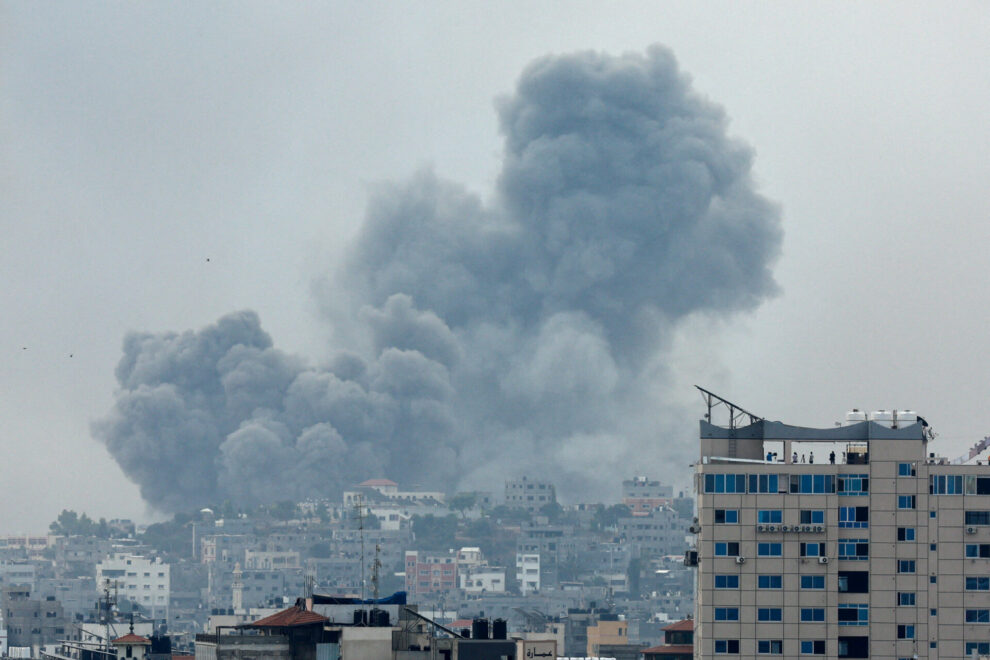The Palestinians’ longstanding and legitimate grievances have been irrevocably subverted by Hamas’ brazen attack against Israel on Oct 7. Unlike previous rounds of conflicts and clashes between Israel and the Palestinians on the one hand and neighbouring Arab states on the other, Thailand has become a direct casualty like never before, as 30 Thai workers have been killed to date, with at least 16 injured and 17 taken hostage. As a militant political movement motivated by Islamic fundamentalism using methods of terrorism to achieve its objectives, Hamas has made a bad name for the Palestinian cause, eliciting condemnation and opposition all the way over here in Thailand.
Developing countries like Thailand generally tend to support underdogs in the rough-and-tumble canvas of international politics. When Israel was established as a nation-state in 1948, it enjoyed broad global support, backed by a United Nations resolution to split the land of Palestine between local Arabs and Jews. Many of the latter gravitated to Palestine after World War II when their race and religion faced persecution and genocidal extermination. Israel’s wars for survival in the face of Arab states’ invasions in 1967 and 1973 also found global sympathy and support.
After this point — perhaps Israel’s invasion of Lebanon in 1982 to eradicate the Palestinian Liberation Organisation — the tables turned. Israel became an occupying force and was seen more as the aggressor rather than the victim. Although a “two-state” deal was worked out and codified in UN resolutions, the Palestinians never got a state and the self-determination they were promised until the Oslo Accords, brokered by the United States, allotted the West Bank and Gaza Strip to the PLO to administer under the Palestinian Authority.
This was more like a one-and-a-half state solution. The Palestinian Authority became a limited self-autonomous government in both territories. The West Bank remained workable as a self-governing entity, but Gaza became problematic. Hamas, an offshoot of the Muslim Brotherhood in Egypt, eventually won an election in Gaza in 2006 over the PLO’s Fatah party. Hamas has since carried out unrelenting attacks against Israel and faced continual reprisals from the Jewish state.
Hamas’ latest violence is attributable to several motives. First, the Arab world is moving beyond the Palestinian plight. While the West Bank remains self-governing and viable despite tensions and issues with Israel, particularly Jewish settlements, Gaza under Hamas’ autocratic control was being lost on the Middle East’s geostrategic chessboard.
Over the past three years, the US-sponsored Abraham Accords have profoundly realigned regional relations in the Middle East and normalised Israeli ties with key Arab states. The peace agreements and attendant recognition of the Jewish state started with the United Arab Emirates and Bahrain in 2020, building on Israel’s earlier peace treaties with Egypt in 1979 and Jordan in 1994.
Soon after, Morocco and Sudan entered into similar normalisation agreements with Israel. Other regional players, from Saudi Arabia and Qatar to Turkey and Iran, then shuffled their strategic postures, realigning and considering normalisation deals, including with Israel.
The diplomatic remaking of interstate relations in the Middle East is favourable to Israel as much as it threatens the existence of violent non-state terrorist entities, such as Hamas and Palestinian Islamic Jihad and Hezbollah in southern Lebanon. If their sponsoring states, such as Iran, normalise relations with hitherto adversaries, these extremist movements’ days would be numbered.
Apart from sabotaging, if not altogether derailing, the peace deals among Arab states and between them and Iran and Israel, Hamas may want to regionalise or even internationalise a broad pro-Palestinian uprising in the region and beyond. The Palestinians’ death toll and sufferings in Gaza have already prompted the Malaysian government to take a supportive stance for Hamas, Indonesia, the largest Muslim country in the world, is casting a glaring eye on Israeli retaliation in Gaza, which may involve a ground incursion. Palestinians in the Arab world, not to mention the Arabs themselves, will likely become more critical of Israel as the conflict escalates.
In addition, it is reasonable to assume that Hamas knew exactly what it was doing when it attacked and wantonly killed hundreds of innocent civilians inside Israel. With Israel’s well-known doctrine of disproportionate response, Hamas was likely geared to provoke the Israeli Defence Forces into a violent overreaction. As more Palestinian lives are lost, Israel may end up being the villain perpetrating violence against a helpless population rather than the victim of Hamas’ aggression.
Global public opinion will thus be fiercely contested. It is not hard to see that the longer the war goes on, the more disadvantaged the Israelis will be. The more measured and Hamas-focused they are within a limited duration, the better the Israelis will likely come out of it. In Hamas’ calculation, Israel’s overwhelming superiority in the force of arms and military prowess may well be its chief weakness in this situation.
For the Thai people, Hamas’ killing spree on Thai workers is unfathomable. Thailand has never done anything to harm Hamas nor caused any trouble for the inhabitants of the Palestinian territories. Survivor accounts from Thai workers who have returned safely indicate that they were specifically targeted by Hamas militants. Perhaps Palestinians in Gaza were resentful of Thai workers in Israel’s agricultural farms for holding jobs that could and should have gone to them. Because of Thailand’s 30-year estrangement with Saudi Arabia until normalisation last year, Israel became an attractive employment destination. Thailand is not alone, as the Philippines has similarly enjoyed employment opportunities in Israel.
Hamas’ brutal killings of Thai workers are totally unjustified. Thai Prime Minister Srettha Thavisin was spot-on to condemn Hamas’ action. When Thais are killed indiscriminately, the Thai government cannot conscionably stand on neutral ground. We need to condemn Hamas’ murderous acts in no uncertain terms and call for the immediate release of Thai and all other hostages. Doing so is not making enemies out of Hamas but sticking up for the innocent Thais who have been killed, injured and abducted.









